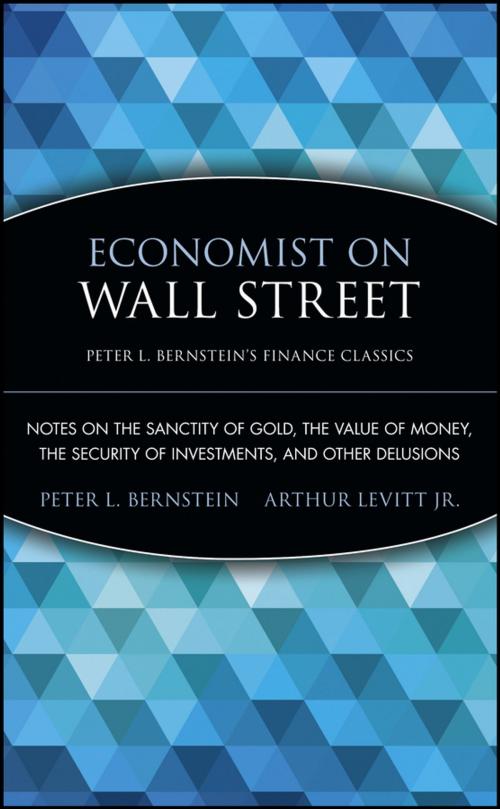Economist on Wall Street (Peter L. Bernstein's Finance Classics)
Notes on the Sanctity of Gold, the Value of Money, the Security of Investments, and Other Delusions
Business & Finance, Finance & Investing, Investments & Securities| Author: | Peter L. Bernstein | ISBN: | 9780470435199 |
| Publisher: | Wiley | Publication: | October 3, 2008 |
| Imprint: | Wiley | Language: | English |
| Author: | Peter L. Bernstein |
| ISBN: | 9780470435199 |
| Publisher: | Wiley |
| Publication: | October 3, 2008 |
| Imprint: | Wiley |
| Language: | English |
One of the foremost financial writers of his generation, Peter Bernstein has the unique ability to synthesize intellectual history and economics with the theory and practice of investment management. Now, with classic titles such as Economist on Wall Street, A Primer on Money, Banking, and Gold, and The Price of Prosperity—which have forewords by financial luminaries and new introductions by the author—you can enjoy some of the best of Bernstein in his earlier Wall Street days.
Peter Bernstein's Economist on Wall Street is a collection of writings from 1955 to 1970. The book is especially interesting because so many of Bernstein's observations reflect the most important issues of the present—the outlook for inflation and its control, the intricacies of monetary policy, the future of the dollar, and the dilemmas of household finances. Bernstein was also concerned with developments in portfolio management, including the new influence of institutional investors and rules for optimal asset mixes. He provides light touches, too, as he indulges in fantasies and philosophical musings over a wide variety of topics.
With so many years of hindsight, we should not be surprised to find some of Bernstein's predictions running awry. But why? In each instance, these forecasts were biased by memories of the past. There is a big lesson to be learned there.
Economist on Wall Street is a remarkable book, with lasting relevance and keen insights into the art of investment management, the capital markets, gold and the dollar, and the fun of being alive.
One of the foremost financial writers of his generation, Peter Bernstein has the unique ability to synthesize intellectual history and economics with the theory and practice of investment management. Now, with classic titles such as Economist on Wall Street, A Primer on Money, Banking, and Gold, and The Price of Prosperity—which have forewords by financial luminaries and new introductions by the author—you can enjoy some of the best of Bernstein in his earlier Wall Street days.
Peter Bernstein's Economist on Wall Street is a collection of writings from 1955 to 1970. The book is especially interesting because so many of Bernstein's observations reflect the most important issues of the present—the outlook for inflation and its control, the intricacies of monetary policy, the future of the dollar, and the dilemmas of household finances. Bernstein was also concerned with developments in portfolio management, including the new influence of institutional investors and rules for optimal asset mixes. He provides light touches, too, as he indulges in fantasies and philosophical musings over a wide variety of topics.
With so many years of hindsight, we should not be surprised to find some of Bernstein's predictions running awry. But why? In each instance, these forecasts were biased by memories of the past. There is a big lesson to be learned there.
Economist on Wall Street is a remarkable book, with lasting relevance and keen insights into the art of investment management, the capital markets, gold and the dollar, and the fun of being alive.















